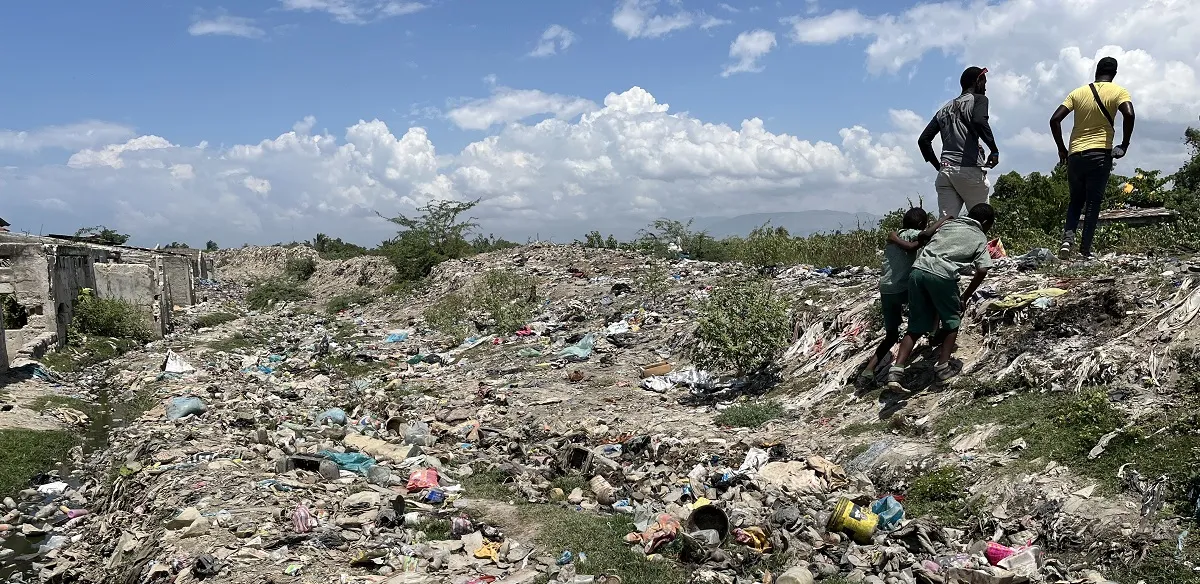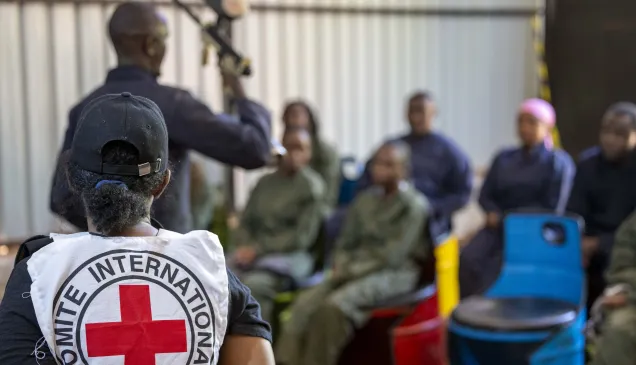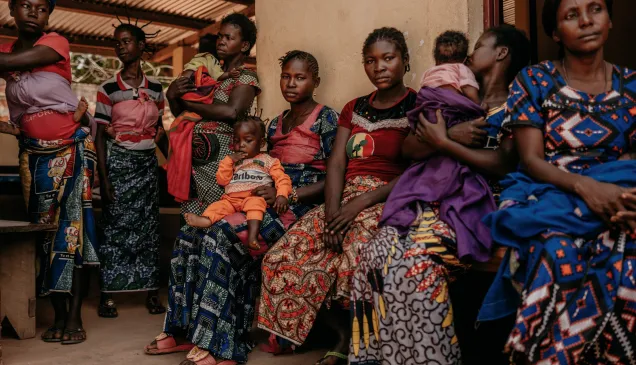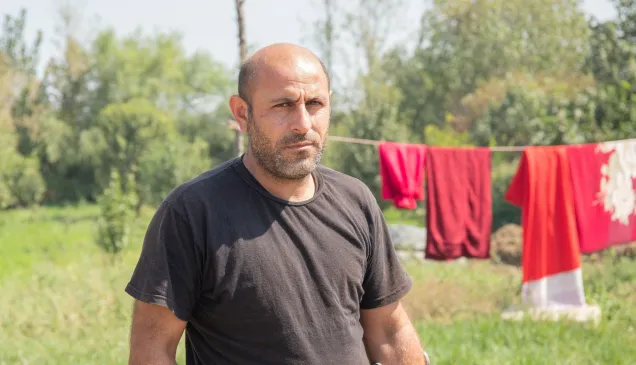Haiti: Renewed clashes fuel a humanitarian crisis that has no end in sight
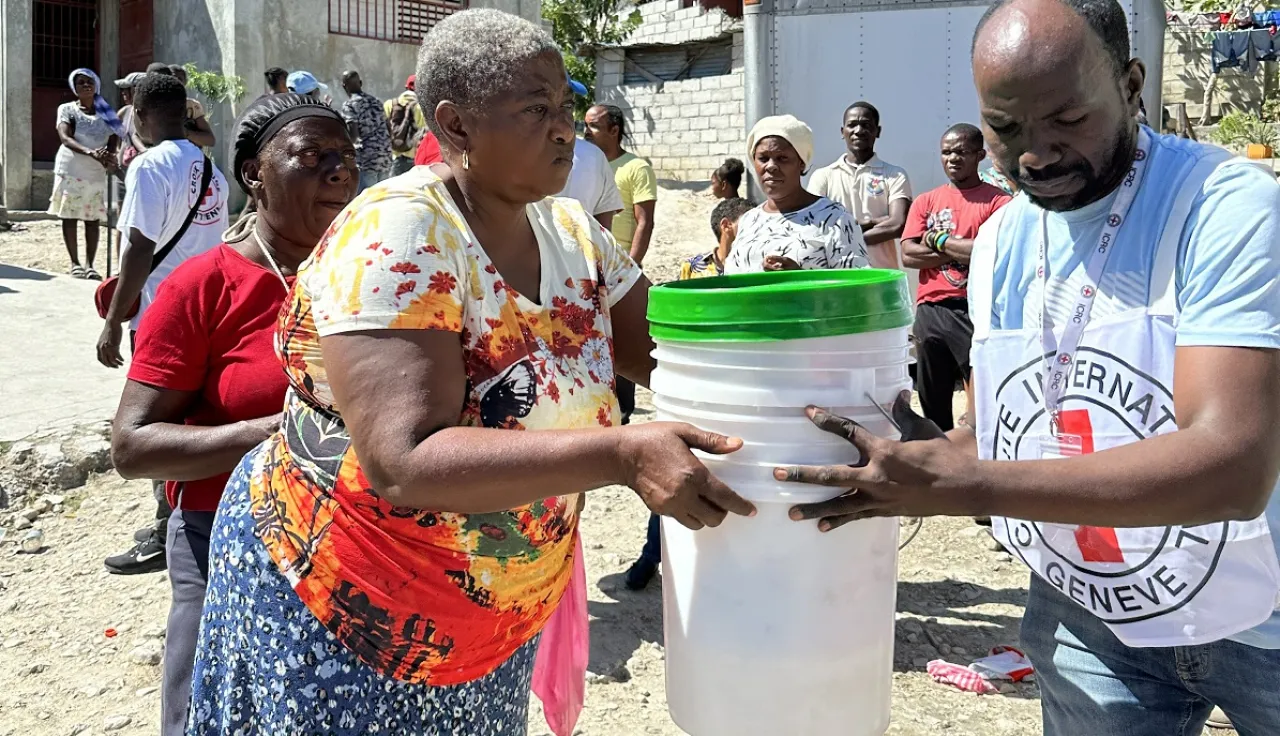
Life in Haiti is becoming increasingly precarious. Thousands of families are being forced to flee their homes in the face of growing armed violence in Port-au-Prince and other regions. Clashes between armed groups in the “Viv Ansanm” coalition and government forces have dragged the country into a spiral of chaos that has made it nearly impossible for people to get the services they need.
In the hardest-hit neighbourhoods, everything is in short supply: medical care, drinking water, food and even basic safety. Many of those affected – women, children and the sick and wounded – have no way to avoid the day-to-day violence.
Since January 2024, over 5,600 people have been killed and more than a million have been forced to leave their homes, according to the United Nations. And the crisis has gone from bad to worse since November 2024, with the clashes reaching several new areas, including Kenscoff in February 2025 and Mirebalais in March 2025.

Annette, in her fifties, lives alone in a displacement site (Haitel site) in Port-au-Prince. She was living peacefully in Pernier with a family member when armed groups invaded her area. Unemployed for several years and with nowhere else to go, she was forced to come and live in this displacement camp. She made these comments during a distribution of hygiene kits.
Essential services collapse
The fighting has had disastrous consequences. Hospitals are no longer able to function properly: the State University Hospital of Haiti, the country’s largest public hospital, came under attack as it was about to reopen. The private hospital Bernard Mevs, along with several humanitarian workers, has also been targeted. Already in 2024, the World Health Organization (WHO) reported that fewer than 40% of health-care facilities in the capital were fully operational.
In many neighbourhoods, getting drinking water has become a daily challenge and, in some cases, a mortal danger. Often, residents take their lives in their hands when going in search of water, as some distribution points are located in areas affected by the armed clashes. Both public and private water suppliers hesitate to venture into these neighbourhoods given the risk of attack.
“All needs here are urgent,” said Marisela Silva Chau, the ICRC’s head of delegation in Haiti. “Basic services have ground to a halt: schools are closing, the health-care system is collapsing, and finding food and water has become extremely difficult. This is true both for people who have had to leave their homes and for those who remain in these embattled areas.”
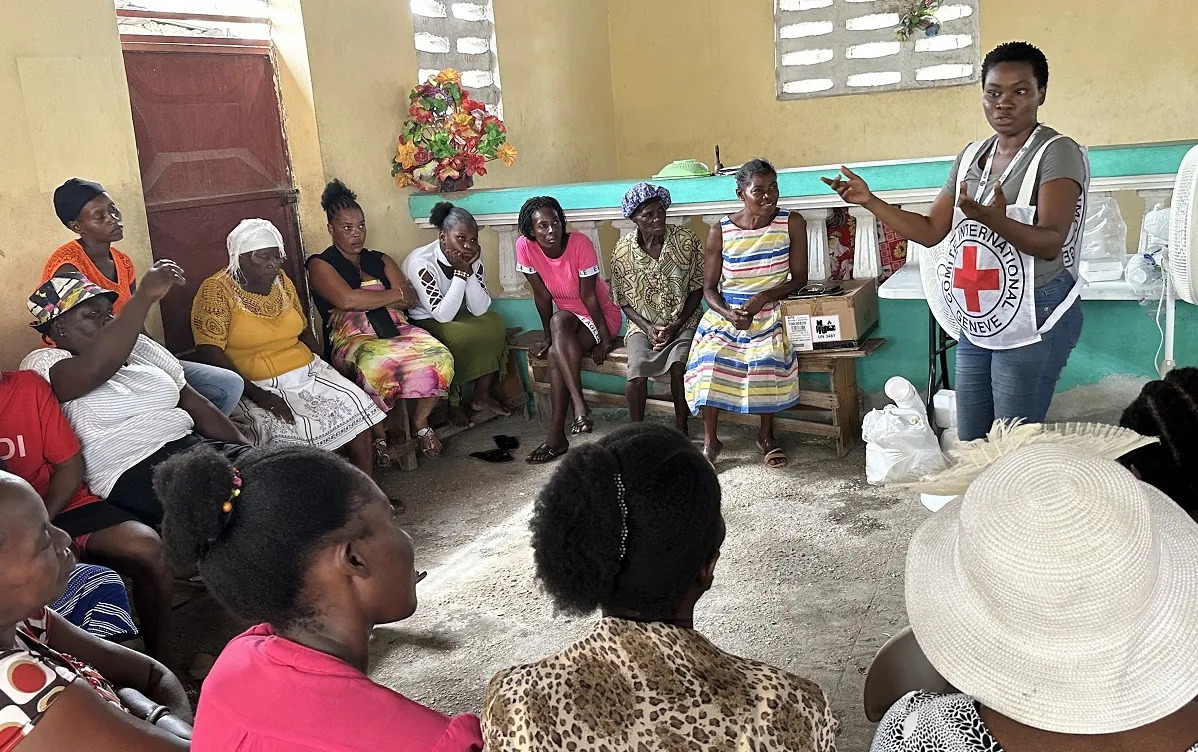
Epidemics and sexual violence on the rise
But this crisis is more than just a series of shortages. Haiti is also experiencing an alarming resurgence of cholera: in March 2025, 200 cases were reported in Cité Soleil, a neighbourhood that has been repeatedly subjected to armed violence, as well as in several displaced persons camps near the capital.
Education is also suffering: more than 200 schools have been destroyed since 2024. Others are occupied by displaced families, who have nowhere else to go. As a result, hundreds of thousands of children are not able to attend school – a factor that could exacerbate the country’s instability over the long term.
And then there’s the silent trauma of sexual violence, which has risen sharply. In January 2025, the UN reported a 1,000% increase in the number of cases of sexual violence against children. The necessary support structures are lacking, which means that victims are on their own in a climate of terror and impunity.
“The explosion in violence and the endless attacks are psychologically devastating,” said Marisela Silva Chau. “Something must be done urgently to prevent sexual violence, ensure people’s safety and treat victims. And both families and communities require psychological support to move past these traumatic experiences.”

Willy, in his forties, currently lives in a displacement site in Port-au-Prince (Cité-Castro). He previously lived at home with his wife and two daughters. He had to leave his home and his daily activities to seek refuge in this camp. His two daughters no longer go to school because of armed violence.
He made these remarks during a distribution of hygiene kits and solar lamps in Port-au-Prince (Cité-Castro).
Humanitarian commitment despite the extreme circumstances
In their ongoing response to this crisis, the International Committee of the Red Cross and the Haitian National Red Cross Society are helping those most affected. According to OCHA, six million people need urgent humanitarian assistance in 2025, and this figure is on the rise.
In response to this emergency, the ICRC undertook the following initiatives in 2024
To improve access to basic health-care services, we:
- set up medical stabilization centres in areas affected by armed violence, including Boston, Simon Pelé and Christ Roi, where it is often difficult to evacuate those in need of medical care.
- provided basic first-aid training to 600 members (including 250 women) of communities hit hard by the armed violence so that they know how to stabilize the wounded before their evacuation to health-care facilities for the required treatment.
- supported national ambulance services by providing financial assistance for vehicle maintenance and for incentives paid to staff members who work during bouts of violence.
- donated medical products and equipment to 10 health-care facilities in the Port-au-Prince metropolitan region and to three hospitals in order to reduce the cost of care and enable them to treat more than 2,000 wounded people.
- delivered financial assistance to La Paix University Hospital to cover the cost of feeding staff who are on call 24/7 in order to keep up with the influx of wounded patients.
- held awareness-raising meetings on sexual violence, which 102 members of the community and hospital staff attended to learn more about this dire issue, share information and report cases.
- delivered individual psychological support to medical staff working in the La Paix University Hospital emergency room as well as to national ambulance workers following critical incidents where they work.
To expand access to water, hygiene and sanitation for those most affected by the armed violence, including displaced people, we:
• distributed 2.6 million litres of drinking water to more than 55,000 people in Cité Soleil, Delmas and Tabarre.
• installed water tanks with a capacity of 10,000 litres and set up handwashing stations to prevent the spread of disease.
• provided fuel, chlorine and equipment to water suppliers so they could distribute water to hard-to-reach areas.
• distributed 2,000 hygiene kits, 2,000 tarpaulins and 3,000 solar lights to help 2,500 displaced families (around 12,500 people).
• installed solar lamps where displaced people were gathered in order to improve night-time security.
• ran cleaning and sanitation campaigns in 20 neighbourhoods that host displaced people in order to improve hygiene and prevent the spread of disease.
To help protect those most vulnerable to armed violence, we:
- expanded the capacity of the Haitian National Red Cross Society to understand and meet the needs of people who have been separated owing to the violence and the return of migrants. We trained eight volunteers on how to respond to needs in Port au Prince, Ouanaminthe, Belladère and Anse-à-Pitre.
- worked closely with affected communities to bolster their resilience mechanisms while at the same time meeting their needs in the areas of assistance and protection.
- held nine information sessions on the protection of individual rights for communities, authorities and influential leaders in the Port-au-Prince metropolitan region.
To ensure weapon bearers are aware of the law and the need to protect people, we:
• informed 400 Haitian police officers of the application of human rights law in their work.
• trained 140 international officers (from Kenya, Jamaica, the Bahamas and Belize) deployed to Haiti as part of the Multinational Security Support Mission.
• reminded armed groups of the principles of humanity, which include the need to protect people, communities and medical workers.
To strengthen the capacity of the Haitian National Red Cross Society, we:
• provided support to the ambulance services, which handled 900 patients, including 170 victims of armed violence.
• distributed humanitarian assistance (hygiene kits, tarpaulins and solar lamps) to 500 displaced families.
• trained 80 volunteers in first aid in situations of violence.
In this fast-changing environment, the ICRC is working day in and day out to ensure the most vulnerable people are safe and have access to water, medical care and food.
“Our approach is neutral and impartial,” said Marisela Silva Chau. “We are working urgently to keep those most affected by the armed violence safe and make sure they aren’t cut off from essential services.”
